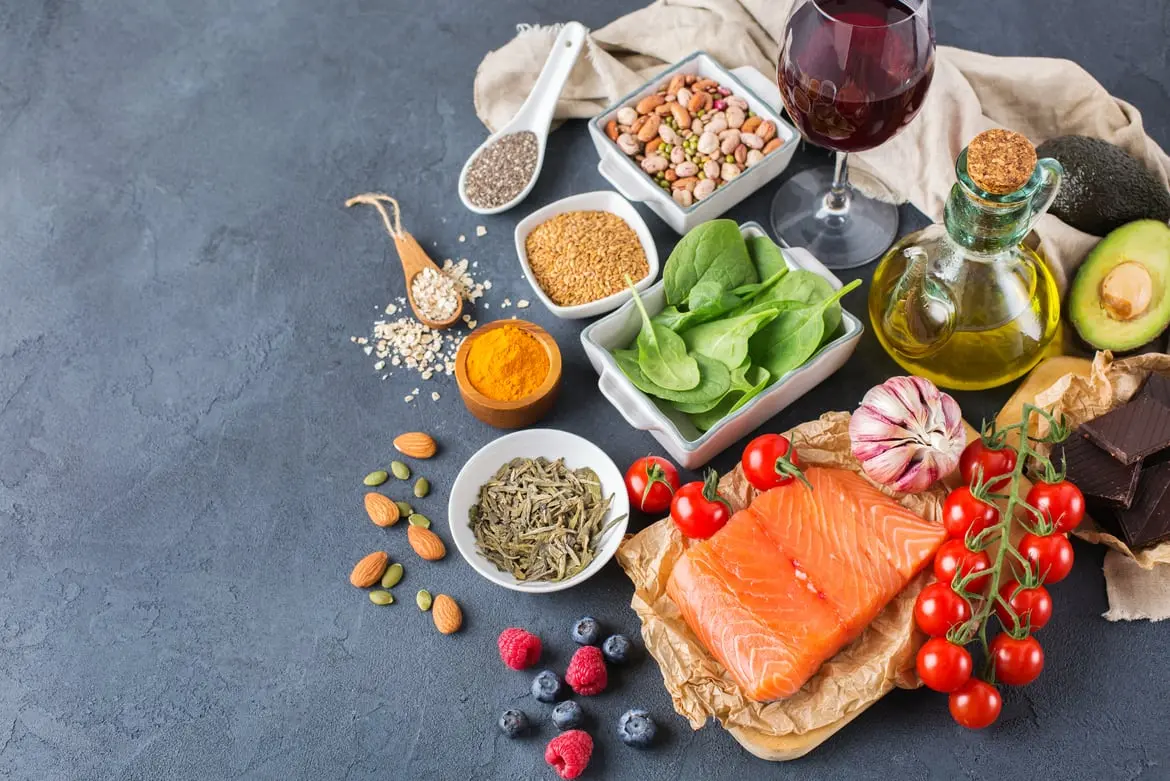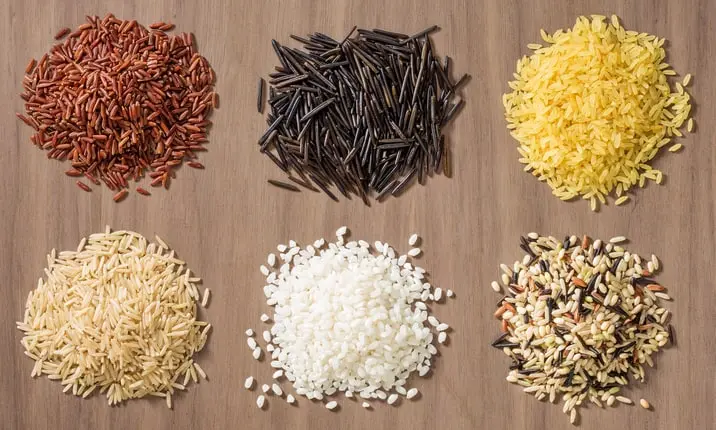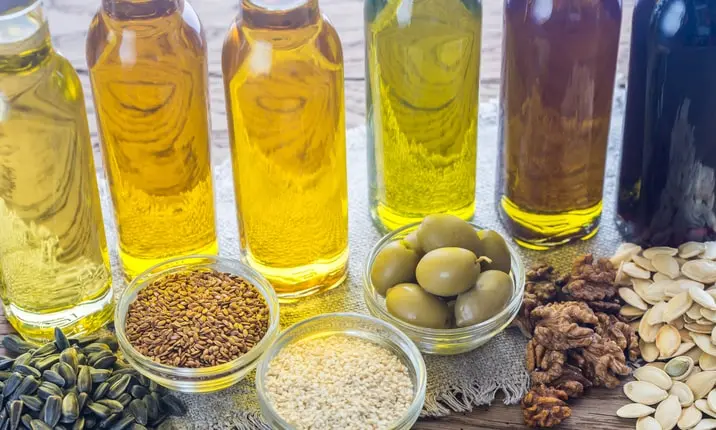-
-
Featured Care Areas


Source: Shutterstock
5 Heart-Healthy Diet Tips
Last updated: Thursday, January 4, 2018 | 3 min reading time
Here are our 5 diet tips for a healthier heart.
Heart disease is an umbrella term for various conditions affecting the heart. While some of these conditions may be beyond your control – for example, if you have an inherited heart defect – you can lower your risk of heart disease by making healthier lifestyle choices.
Unfortunately, you can't reverse heart disease entirely. But you may be able to reduce your risk of heart attack or stroke by eating a more well-balanced diet. Here are 5 changes to make.
Swap your white rice for brown rice
Did you know that all white rice actually starts out as brown rice? The milling process to extend its shelf life is what actually turns it white – but unfortunately, this process also strips the rice of many of its nutritional qualities, including fibre, vitamins and minerals.
While white rice is often fortified to make up for this, brown rice is still thought to be better for you in many ways. It is naturally higher in fibre, which can help to lower your cholesterol levels and leave you feeling fuller more quickly.
Increase your green vegetable intake
Eating more green leafy vegetables – like watercress, broccoli, romaine lettuce, kale, Chinese cabbage and spinach – is thought to reduce the incidence of heart disease by 15.8%.
Not only do green leafy veggies contain high levels of vitamin B, vitamin C and vitamin K, but they also contain lots of other essential nutrients like iron, folate and riboflavin, which are all good for your heart.
Cook with unsaturated oil
Choose unsaturated oil eg. olive, soybean or canola oil for cooking and preparing food. This helps to lower your bad cholesterol (LDL) level and raise good cholesterol (HDL) level.
Swap fatty meat for fish
Red and processed meats are high in saturated fat and salt, both of which increase the risk of heart disease.
Fish is low in saturated fat, but high in protein, and is an important source of omega-3 fatty acids, which can help to decrease triglyceride levels, slow the growth rate of atherosclerotic plaque and lower blood pressure. The American Heart Association recommends eating fatty fish at least 2 times (2 servings) a week. Examples of fatty fish are salmon, mackerel, herring and sardines.
Just one 6oz serving of fatty fish a week should give you your recommended intake of omega-3. If you are vegetarian or vegan, you can get your intake from plant sources like walnuts, pumpkin seeds, flaxseed and soybeans instead.
Snack on fruit rather than processed treats
Are you prone to snacking during the day between meals? Instead of reaching for packets of crisps, biscuits or other processed snacks, give nature's raw goodness a try. You've got an array of fruit to choose from to take in your daily dose of powerful antioxidants, fibre, vitamin C, vitamin K, folic acid and potassium. And research suggests that such nutrients can significantly lower blood pressure and reverse some of the other negative side effects of heart disease such as cholesterol, even preventing cholesterol from 'oxidising' (the process that causes a build-up of plaque in the arteries, which may lead to a heart attack).
More tips for a heart-healthy diet
In general, a healthy, balanced diet, rich in fruit, vegetables, wholegrains (like oats and wholegrain bread) and low fat dairy products, is kind to the heart.
High cholesterol increases the risk of heart disease, so you should reduce your intake of foods that are likely to increase cholesterol or are high in saturated fat and trans fats, such as:
- Fatty meat and meat products
- Full fat cheese, milk, cream and yoghurt
- Coconut and palm oils
- Cakes and pastries
- Snack foods like cookies and crisps
Instead, try to eat more:
- Lean meats, beans and tofu
- Fish
- Vegetables
- Nuts
- Non-fat and low-fat dairy products
Consult your doctor and dietitian for more tips about controlling your blood pressure, exercising regularly, maintaining healthy cholesterol levels and more.
Butler, N. (2017, July 10). Brown Rice vs. White Rice: Which Is Better For You? Retrieved December 22, 2017, from https://www.healthline.com/health/food-nutrition/brown-rice-vs-white-rice
Eating Fish Linked to Fewer Heart Attacks. (2014, November). Retrieved December 22, 2017, from https://www.health.harvard.edu/heart-health/eating-fish-linked-to-fewer-heart-attacks
Folate (Folic Acid). (n.d.). Retrieved December 22, 2017, from https://www.webmd.com/diet/supplement-guide-folic-acid#1
Folic Acid For Your Heart. (n.d.). Retrieved December 22, 2017, from https://www.webmd.com/heart-disease/news/20021122/folic-acid-for-your-heart
Green Tea May Lower Heart Disease Risk. (2012, December). Retrieved December 22, 2017, from https://www.health.harvard.edu/heart-health/green-tea-may-lower-heart-disease-risk
Healthy Eating: Eating Heart-Healthy Foods. (n.d.). Retrieved December 22, 2017, from https://www.webmd.com/heart-disease/eating-a-heart-healthy-diet
Kim, S. (2015, July 17). Heart Disease Overview. Retrieved December 22, 2017, from https://www.healthline.com/health/heart-disease
Leech, J. (2016, August 18). 12 Health Benefits of Pomegranate. Retrieved December 22, 2017, from https://www.healthline.com/nutrition/12-proven-benefits-of-pomegranate
Lowe, G. M. & Rahman, K. (2006). Garlic and Cardiovascular Disease: A Critical Review. American Society for Nutrition.
New Study Shows Aged Garlic Extract Can Reduce Dangerous Plaque Build-up in Arteries. (2016, January 21). Retrieved December 22, 2017, from https://www.sciencedaily.com/releases/2016/01/160121122158.htm
Pollock, R. L. (2016). The Effect of Green Leafy and Cruciferous Vegetable Intake on the Incidence of Cardiovascular Disease: A Meta-Analysis. JRSM Cardiovascular Disease.
Shaw, G. (2014, October 3). Can You Reverse Heart Disease? Retrieved December 22, 2017, from https://www.webmd.com/heart-disease/features/can-you-reverse-heart-disease#1
Thompson, D. (2014, June 5). Are You Eating Enough ‘Powerhouse’ Vegetables? Retrieved December 22, 2017, from https://www.webmd.com/food-recipes/news/20140605/are-you-eating-enough-powerhouse-vegetables#1
Eating Fish Linked to Fewer Heart Attacks. (2014, November). Retrieved December 22, 2017, from https://www.health.harvard.edu/heart-health/eating-fish-linked-to-fewer-heart-attacks
Folate (Folic Acid). (n.d.). Retrieved December 22, 2017, from https://www.webmd.com/diet/supplement-guide-folic-acid#1
Folic Acid For Your Heart. (n.d.). Retrieved December 22, 2017, from https://www.webmd.com/heart-disease/news/20021122/folic-acid-for-your-heart
Green Tea May Lower Heart Disease Risk. (2012, December). Retrieved December 22, 2017, from https://www.health.harvard.edu/heart-health/green-tea-may-lower-heart-disease-risk
Healthy Eating: Eating Heart-Healthy Foods. (n.d.). Retrieved December 22, 2017, from https://www.webmd.com/heart-disease/eating-a-heart-healthy-diet
Kim, S. (2015, July 17). Heart Disease Overview. Retrieved December 22, 2017, from https://www.healthline.com/health/heart-disease
Leech, J. (2016, August 18). 12 Health Benefits of Pomegranate. Retrieved December 22, 2017, from https://www.healthline.com/nutrition/12-proven-benefits-of-pomegranate
Lowe, G. M. & Rahman, K. (2006). Garlic and Cardiovascular Disease: A Critical Review. American Society for Nutrition.
New Study Shows Aged Garlic Extract Can Reduce Dangerous Plaque Build-up in Arteries. (2016, January 21). Retrieved December 22, 2017, from https://www.sciencedaily.com/releases/2016/01/160121122158.htm
Pollock, R. L. (2016). The Effect of Green Leafy and Cruciferous Vegetable Intake on the Incidence of Cardiovascular Disease: A Meta-Analysis. JRSM Cardiovascular Disease.
Shaw, G. (2014, October 3). Can You Reverse Heart Disease? Retrieved December 22, 2017, from https://www.webmd.com/heart-disease/features/can-you-reverse-heart-disease#1
Thompson, D. (2014, June 5). Are You Eating Enough ‘Powerhouse’ Vegetables? Retrieved December 22, 2017, from https://www.webmd.com/food-recipes/news/20140605/are-you-eating-enough-powerhouse-vegetables#1











